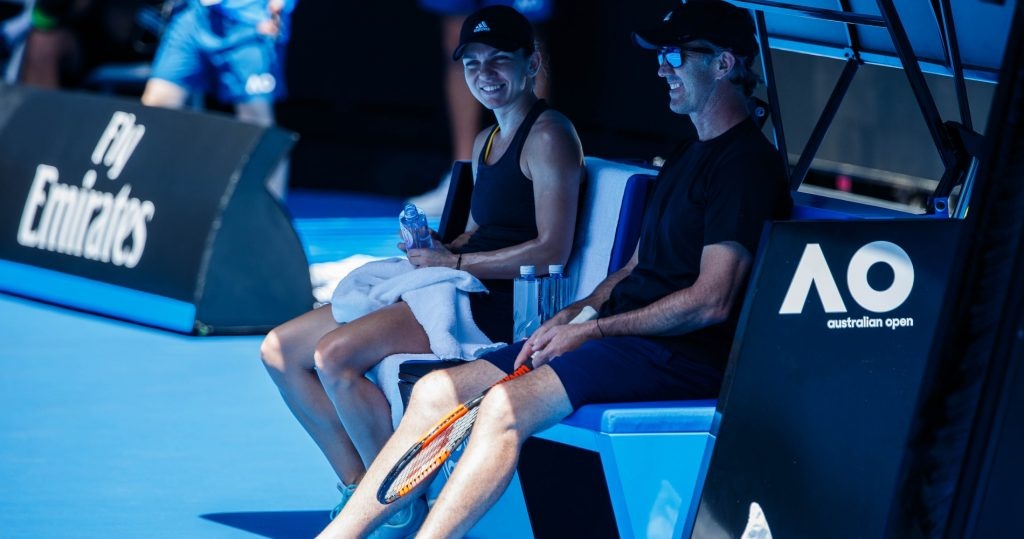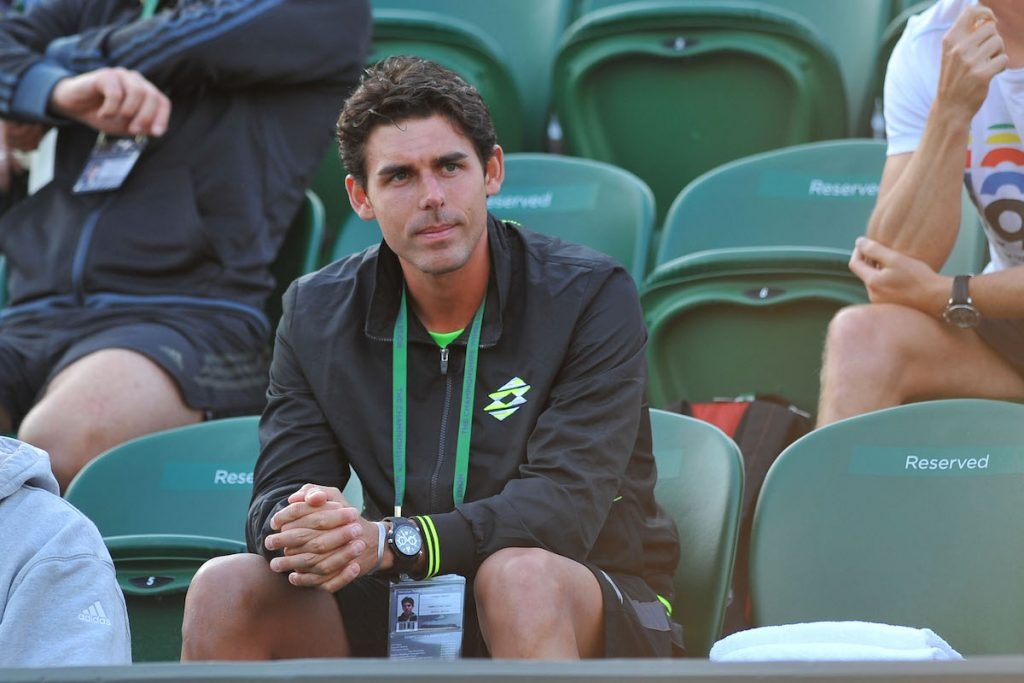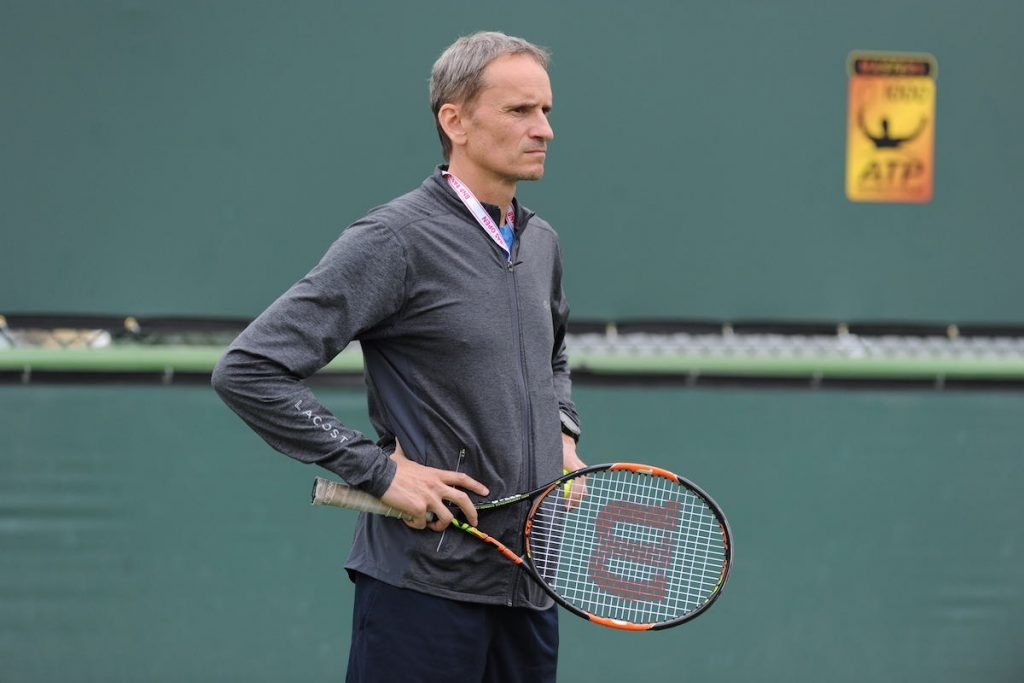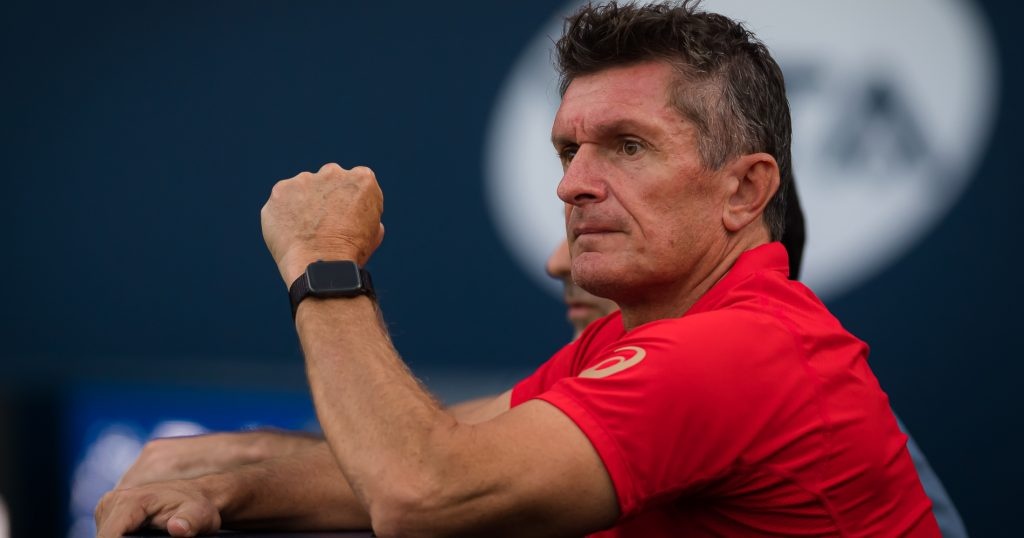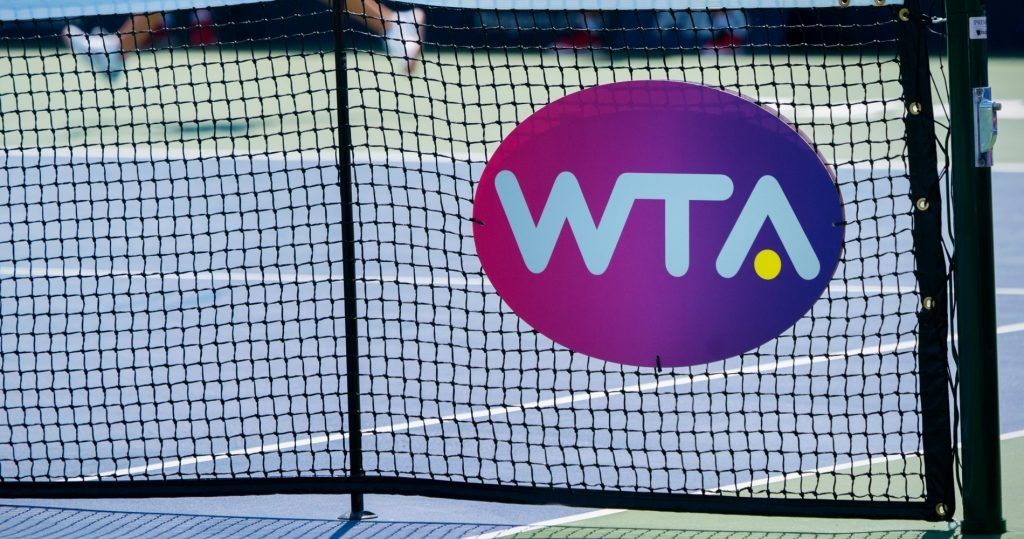“99% of us are not getting paid” : Tennis coaches plead for a better job security amid Covid-19 crisis
Many coaches on the ATP and WTA Tours are now stranded with zero income at the moment. And with no system able to help them.
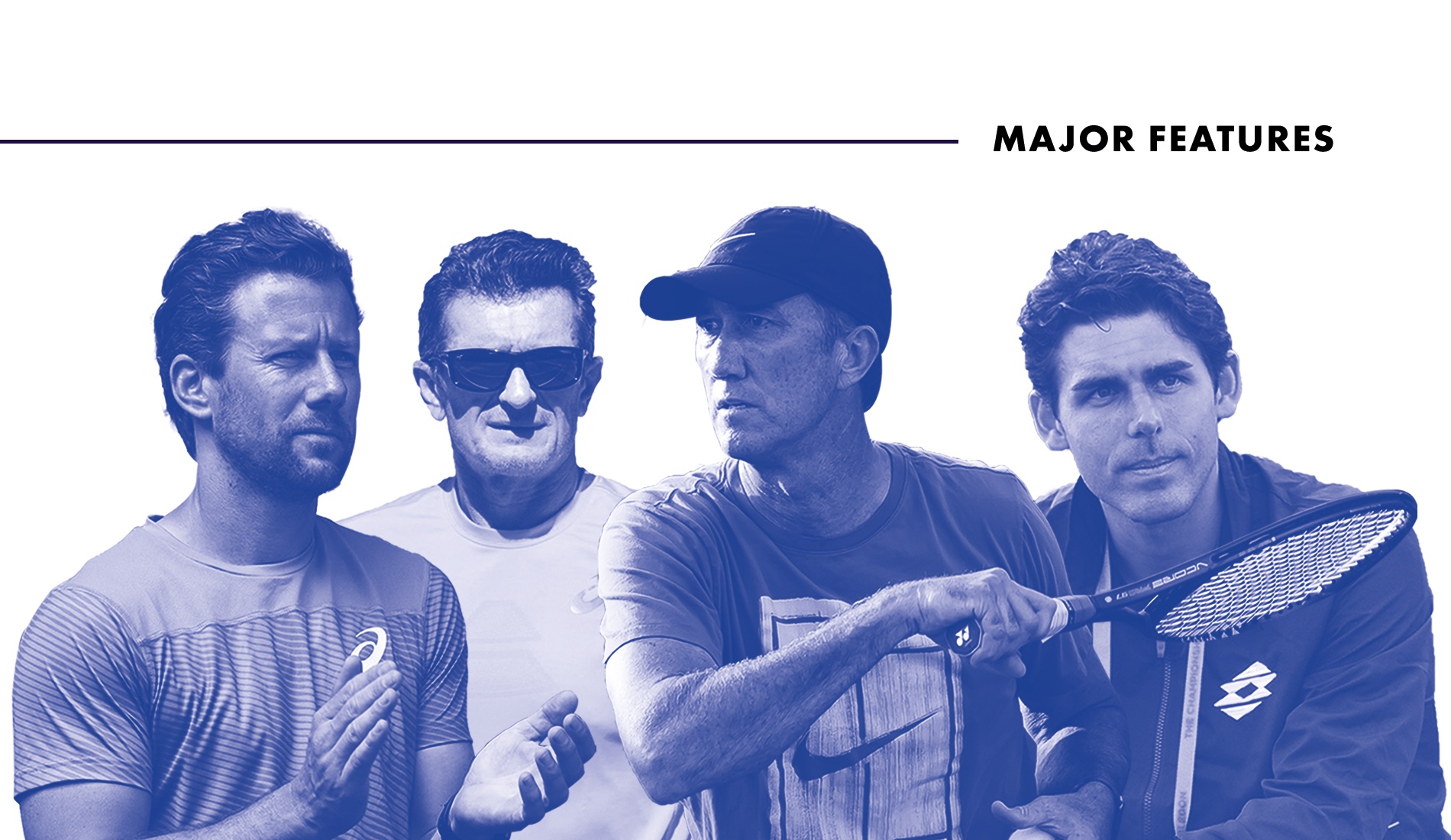
Often paid by the week or the month by their players, many coaches on the ATP and WTA Tours are now stranded with zero income at the moment. And with no system able to help them. We’ve talked to some of them to get a picture of the issue.
• READ : If the 2020 calendar is not clear for you, here is the current situation
“Thank you to my team. I wouldn’t be there without them. Special thanks to my coach who believed in me and helped me get there.” How many times are we hearing this from players at trophy ceremonies or at press conferences? These days, in the Covid-19 world, some coaches are left wondering if some of those words were just this: words. The Tour has been put to sleep by the virus, most of the players are still confined at their homes and those who live in countries relaxing the measures are not yet fully back to practice. There is still no timeline for any official tournament to be set.
“99% of the coaches at the moment are not getting paid”
And all around the world, we see talks of setting up relief funds for players, especially for the lower-ranked players. What we’re not hearing enough is that there’s another population left to struggle right now, a population that financially depends on the players. Their coaches.
What’s happening with them right now? Here’s the heart of the matter: coaching on the Tour, event at the top level, has zero job safety. If their players don’t do the right thing, coaches land in a no man’s land. Whether it is the around 200 who are certified by the Tour, or all the other ones.
Contrary to what some could think, coaches aren’t earning anything close to the players’ prize money you can see in a Masters 1000 or a Major. Of course, there’s a minority who clearly is not struggling financially right now, but most of the other ones are. There’s not a coaching situation that looks like another one in a world where each deal is different and each background is too.
Most of them, when working with a specific player, have a comfortable income. But it’s by the week or the month, rarely by the year, and it can stop just like that. It also doesn’t come with health insurance nor a pension fund, as most of them have to finance those two privately. Depending on the country they’re from, the support system for independent workers can dramatically vary. Also like any other worker, they have families to support, sometimes loans to pay for. Their standards of living depend on players who right now can’t play anymore, and so with the players at a stop, everything they generate for the tennis economy is taking the wall too.
Darren Cahill, who is currently in Simona Halep’s team and has been coaching at the highest level for decades (Andre Agassi, Lleyton Hewitt), goes straight to the point: coaches do not get a thing right now.
“There is no security for being a tennis coach. 99% of the coaches at the moment are not getting paid. And it’s just like the players as well: unless you’re one of the top players and have contract money, they’re not getting paid either. So being a coach on the WTA or the ATP at the moment is incredibly difficult. For the moment, the coach is not protected at all.”
For Sam Sumyk, former coach of Victoria Azarenka or Garbiñe Muguruza and more recently of Anastasia Pavlyuchenkova, there is no surprise in seeing the little care given to the coaches.
“I don’t think this is the problem of the tennis authorities: it is up to us to take our destinies in hands. Why wait for something that will never come? We are not going to receive anything to help us at the moment unless we have a very specific contract, but that concerns very few coaches. There is nothing that exists. Case closed.”
“Players are business leaders, they have responsibilities to the people they employ”
Wim Fissette, working Naomi Osaka, has known all kinds of situations while climbing the coaching ladder, so he knows that many of his colleagues are struggling right now.
“Financially, it could become awfully rough for a lot of coaches. I’ve had contracts where I was paid on a daily base, on a weekly base, on a monthly base or for the year. Most of the coaches have contracts by days or weeks. A lot of them will be out of a job.”
No more revenue for months, that’s what could have happened to Thomas Drouet, the coach of Wang Qiang, Chinese no.1 and Top 30 player. Confined in France while she’s in China, the Frenchman struggled before finding an agreement with his player so he wouldn’t be left without any income indefinitely. And thus despite having a contract for a number of weeks of work, on and off competitions, for the year.
The story found a happy ending mid-April, but it made him understand that something should be done to help coaches.
“We work with players who earn a lot of money: those days they could give us a specific amount each month to help us. They are business leaders, they have responsibilities to the people they employ. There are courses organized by the WTA to teach them how to manage Instagram, so maybe they should do the same for this side of the job.”
Drouet has created a group of discussion with all the certified coaches from the WTA, to share information and help in this time of need, and to see if the coaches as a whole could be able to unite over a project.
“It is not normal that we are in this situation. I don’t know how many players have said to their coach ‘I’m going to help you’ … I’m trying to get information from other coaches on the types of contracts, to also know how many don’t even have one, to show the WTA that we are precarious.”
Drouet would like to see the coaches form a union and then build a safety net with clear guidelines for everyone concerned.
“It could happen if we’d manage to agree on the claims.”
And what would those be?
“An international health insurance for a start, but also a contribution to our retirement. There should also be a legal framework: we could create a union, and in exchange of a fee, we would have a lawyer to help us in the creation of contracts and in any disputes that might arise with the players. The WTA does a good job of organizing insurance and pension for its players. But what are the real advantages of the WTA Coach Program and the Gold Coach category now? If they’d help us set up insurance, retirement and the legal framework, that would be good.”
“We could create a union”
He’s not the only one to hope that this crisis will be a wake-up call, as Darren Cahill calls for the coaches to do something now.
“It’s going to be important to get together and put some things in place that are going to help in the future. It could be standardizing contracts, it could be a termination clause. There has to be some security that gives the coaches on both tours the ability to be a little bit protected. Even buying into the players’ insurance as well, which would help a lot of us when we travel.”
As independent contractors and coming from so many different countries, many coaches don’t fit any box regarding help available to get through the Covid-19 outbreak crisis, but also regarding health insurance or retirement pensions. Those who haven’t had the means to set up those safety nets by themselves are living on the edge.
Frédéric Fontang knows that he’s among the lucky few today as he’s working with rising star Felix Auger-Aliassime, someone who can afford to keep the team despite the worldwide pandemic and who made a point to do it.
“My case is a bit special, I am still paid by the week but with a player which is already at a certain level. I still share a certain precariousness with certain coaches who have my profile: not employed by a federation and paid by the week. If I am not with Felix, I am not paid. But I’m lucky to be with a player who is already in the Top 20, so we stay active and he can afford to pay for a team.”
Fontang learned very early how to survive the coaching life.
“What is happening today shows that the coach is in a weak position. There are some players who are very respectful, who have certain values and others who don’t: it is not a judgment, it is a fact. I have never been salaried as a coach and that’s how it is for 90% of the coaches on the Tour. There is no protection if we do not create it ourselves. I always tell young coaches to make sure they are not totally dependent on their players financially. For those who are really struggling right now, who didn’t realize that it was really a precarious profession, it might make them think. Don’t put all your eggs in one basket.”
The ATP, like the WTA, has an association of certified coaches.
“We pay a membership fee. We are certified ATP coaches”, explains Fontang. It means “access to information from the players’ zone, to civil liability insurance and also to health insurance, but I’m not sure what it is worth, so I would nevertheless recommend taking something next to it.”
Fontang is grateful for that, but admits it’s not enough, especially nowadays.
“They are trying to be active, but for the moment we are far from having security in relation to contracts in particular. And also we’re not more like 200 people, certified, ATP and WTA combined, so what kind of leverage can we have? If players receive money through support funds, those with good values should share it with their teams. But here we are in the heart of the thing … It is always difficult to discuss this financial aspect with the players. I hope that we will work towards a little more recognition.”
The funds. What about them? We’re hearing of legitimate initiatives to create relief funds for players, but shouldn’t there be a mandatory percentage of this money given to the teams? So the coaches but also fitness trainers and physiotherapists get something? Darren Cahill still hopes players will do the right thing: “The players are more important and they deserve the funds before anybody else does. And then if the players can find a way to help their respective coaches, that would be a wonderful thing to do.”
But Thomas Drouet would like to see a stronger move:
“They could make support funds for the players by organizing a percentage that would be redistributed to the teams. Some of us are now earning nothing, and the banks don’t care, so we have to keep paying for the loans. So when I hear some saying that we have to cancel the season… But it is not possible! It’s horrible. It shows how we are really considered in tennis. Unfortunately, I don’t think there will be a profound change. Will the players who don’t want to help us now fight afterward for us to get another status? There is no one behind us.”
Would the silver lining of this whole ordeal be a collective action to get a new coaching status? Sam Sumyk advocates for recognizing better the work of the coaches on both Tours.
“A change of system should have happened a long time ago already. There should be a common force in our profession, perhaps we would call it a union or a platform, which would defend our interests and provide us with some security. It’s not in the sense ‘we fight against everything, we love nothing’, but in a very constructive way. Creating a platform where any debate would be welcome to improve the working conditions of coaches, especially when things go wrong. We are not in a world of teddy bears.”
Sumyk agrees that basic rights should be implemented for coaches:
“We’d need medical insurance, a common fund for pensions.”
And most of all, they’d need to be heard:
“We need a voice because we remain a large population in the tennis world. We will never be more important than the players who are the main actors, but we must still be respected a little and not be a value that is thrown in the trash if someone gets up on the wrong foot.”
“It seems to me that it is every man for himself”
But Sumyk doubts if the coaches are really ready to fight together:
“I would like us to organize, but I’m not sure it could exist. The world of coaches, we don’t all kiss each other on the cheek in the morning, don’t believe that. It seems to me that it is every man for himself. The coaches between them are already struggling to talk about tennis so the rest seems complicated to me.”
Still, that idea of a platform seduces him:
“A union or a platform is totally different because then everyone would find it beneficial. We don’t all have to have the same opinion to get things done.”
Mike Anders, head of the coaching program of the WTA, is well aware of those struggles. Ideally, the WTA would help, but as he told us, it’s not that easy.
“We’re well aware that nearly everyone is in great financial need. It’s something we definitely looked into. But with the number of people in desperate need of support, it makes that difficult. Also with the structure of the Tour (50% players, 50% tournaments), it makes things complicated. We’re trying to do whatever we can. Also for an actual formal financial support system, I’m not sure legally what we’re allowed to do with the structure and different employment laws because coaches are not employees. And also with the number of coaches, players, tournaments that are hurting right now, it really dilutes the pot.”
“We’re going to try to give coaches the opportunity to showcase their skills”
They can’t also force the hands of the players.
“Players are independent contractors so we can’t make them do anything about it.”
But Anders tells us that they’re still looking into providing help.
“It’s a matter of working together with all the different stakeholders to see what’s available and how we can help. We’re definitely looking into the situation.”
It might not come all in the form of money:
“I’m trying to see what we can provide virtually. We’re doing a lot of professional development right now, to help them acquire some new skills and degrees. We also did an analytics webinar. We’re trying to develop opportunities: to give them a platform where they can promote themselves. We’ve relaunched the WTA coaches section of the website: we’re going to try to give them the opportunity to showcase their skills, to use our platform to help them out.”
And Anders will also try to make sure that when the Tour is back on track, some tournaments won’t be tempted to cut the on-site coach program advantages.
What this pandemic showcases in tennis is not only the redistribution issues among the players, but also the lack of structure of the whole thing. There should be a way to create a system where the players’ teams, which have considerably grown lately and whose role is of undeniable importance for the sports’ quality (and also for the sports entertainment value if we judge by the various coaches conferences, clinics but also on-court coaching time implemented in recent years) could rest their back on when either the players let them down or when, yes, a pandemic strikes or when they get sick, injured at work and also when they retire.
It seems more than weird than in a professional sport where millions of dollars are circulating, coaches could be let on the side of the road during a pandemic without people’s batting an eye. Visible and praised when everything is fine, invisible as soon as an issue comes.
Players are made to invest a lot of money into their careers and the cost of having a team is high, but if one does make that choice then one should also make sure the team can be properly taken care of. Maybe it means lowering the income of the coach in exchange of a contribution to health insurance and pension fund. Maybe it means other adjustments from both sides.
Helping the coaches who are currently struggling and those who will have lost their jobs during the pandemic is a way to make sure that those people that 90% of the players will need at some point, will still be able to do that job again when the Tours will be back playing. It’s to ensure the continuity and the quality of the performance. The same quality that brings investors into tennis, and for players, the same quality that leads them to perform better and so to earn more money. Covid-19 is wreaking havoc in the tennis world, also exposing weaknesses that should have been sorted out a long time ago.
